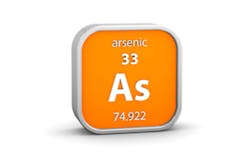Dartmouth research center receives grant to study arsenic exposure
LEBANON, N.H. — The Children's Environmental Health and Disease Prevention Research Center at Dartmouth and its partner universities Stanford University, Harvard Medical School and the University of Miami have received an $8 million grant to expand their research into arsenic toxicity in children and pregnant women, according to a press release.
Read more articles on arsenic here.
The U.S. Environmental Protection Agency (EPA) and the National Institute of Environmental Health Sciences have jointly funded the five-year grant, the release reported.
"With the expansion of the center, we can deepen our understanding of environmental exposure to common contaminants such as arsenic during fetal development and childhood and the impact these exposures have on childhood immunity, growth and neurobehavioral development," said Professor Margaret Karagas, director of the Center and a professor at Dartmouth's Geisel School of Medicine.
The Center builds on a Dartmouth study started in 2009 of pregnant New Hampshire women whose private wells may contain elevated arsenic levels; the health of their children with be evaluated in the long-term, noted the release.
Find companies specializing in arsenic removal in our Buyer’s Guide.
According to the release, the Center's research will focus on three projects: Investigating the effects of arsenic exposure on mothers and infants and their susceptibility to allergies and infection, quantifying arsenic exposure through water and food during infancy and early childhood and determining its impact on growth and neurobehavioral development and examining epigenetic and gene expression changes in the placenta in relation to arsenic exposure and health effects.
